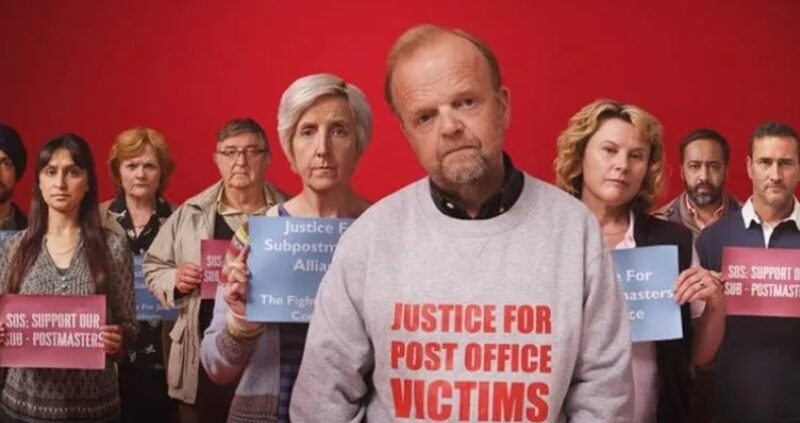By Dave Knaggs, chair of Penrith & The Border CLP, personal capacity
The vast majority of discussions appraising the problems with the UK’s democracy tend to focus on reforming the voting system with much less attention afforded to the more significant flaws that fundamentally undermine the processes of democracy and governmental accountability.
If we are to address the frailties of our democracy, we must focus on reducing the current democratic deficit, encouraging voter participation, increasing the accountability of our elected representatives and reducing the impact of anti-democratic structures and processes. Socialists must not be distracted from a meaningful transformational agenda that will bring real improvements to our system of democracy.
The democratic deficit in the system
The often-discussed democratic deficit is within the system, not the people. Our current system of ‘democracy’ provides a newly elected government with a mandate to do whatever they wish for a fixed period of 5 years until the next general election. During this period there is no requirement to make any further reference to the electorate, nor is there any formal process of public accountability or challenge.
In the meantime, as we have seen, a government can appoint unelected officials into key government jobs, promote failed election candidates to the unelected House of Lords, abandon all election commitments, break international and UK laws, illegally prorogue parliament, politicise the civil service, diminish the judiciary and impose new electoral boundaries that favour their own party’s fortunes. Under the leadership of Johnson, we are currently burdened with a dystopian autocracy that has further damaged parliamentary integrity.
Electoral reform is often misleadingly mis-sold as a way of addressing the democratic deficit. However, the reality is that the failure of large chunks of the electorate to engage is substantially because many politicians are perceived to have lost their honesty and integrity.
There have been cash for questions, sex(ism), racism and misogyny scandals, the expenses scandal, election expenses frauds, broken promise after broken promise, crony contracts, outright lies, bullying and the dishonest use of doctored figures and statistics. Even election manifesto pledges are abandoned before the ink has dried on the ballot paper! And we now have a Prime Minister who lies almost every time he moves his lips, whilst cheerfully limboing way below any acceptable standards expected of those in public office.
Founding values and beliefs
Trust in UK democracy has been further damaged by the dominance of career politicians doggedly seeking to align with ‘electable’ policies and, in doing so, unashamedly jettisoning the values and beliefs on which their party was founded. It frequently seems that no compromise is too great if it helps to hold on to the parliamentary salary for a few more years. With only a small number of exceptions, it has again become increasingly difficult to discern between the politicians of different parties. Labour leaders have frequently been woefully remiss in abandoning any socialist values.
Was it ‘Labour’ values that prompted Harriet Harman, as interim leader in 2015, to announce, “Labour will not vote against the government’s welfare bill and should not oppose limiting child tax credits to two children”?
Was it ‘Labour’ values that prompted Tony Blair to exorcise the soul of the party in removing Clause IV, rebadging the party as New Labour and enthusiastically continuing with Thatcher’s neoliberal economics. Is it any wonder that Thatcher described Blair’s New Labour as her greatest achievement?
Was it ‘Labour’ values that inspired Keir Starmer to instruct Labour MPs to abstain on the Overseas Operations Bill, which will make it far harder to prosecute war crimes, and the Covert Human Intelligence Sources Bill that will allow undercover informants working for the police and MI5 to commit crimes?
Corbyn made progress in addressing voter disenchantment
The Labour Party, under the stewardship of Jeremy Corbyn, made progress in addressing voter disenchantment with a policy proposition that was very different from the other parties. He put forward a distinct set of policies which were unmistakably based on a clear set of values, principles and beliefs.

This approach began to rouse the interest of the electorate who saw that not all politicians are corrupt, duplicitous or money-grabbing careerists. The Labour Party membership subsequently surged, to become the biggest of any in the whole of Europe. This was not about a new voting system but a new way of ‘doing politics’.
The huge advantage bestowed upon the Tory Party by neoliberal capitalists through lavish funding donations is even more disruptive of democracy. Then there’s the support of a biased mainstream media whose enormous ‘cost free’ promotional benefits aren’t, unfortunately, counted against election expenses — which means that Rupert Murdoch’s support is, literally, priceless.
Events across Merseyside at the 2019 General Election offer an insight into what happens when a toxifying media is shunned by the electorate: fourteen Labour MPs either retained their seats or regained them from ex-Labour defectors. The substantial difference in Merseyside is the very effective campaign for a ‘total eclipse of The Su’ newspaper’ because of the despicable reporting at the time of the Hillsborough disaster.
What could have been the outcomes in 2017 and 2019?
This regional distrust of the right-wing media meant that it has little impact on the local electorate’s perspective. This explains Dan Carden winning 84.7% of the votes, Sir George Howarth winning 80.8% and former Labour MP Frank Field, who ran as an Independent, being trounced by Labour’s Mick Whitley who secured a 17,705 majority.
Imagine what the outcome of the 2017 and 2019 General Elections could have looked like if the whole electorate had been shielded from the influence of the right-wing press!
When the controlling media capitalists don’t like a party or a politician, they have the power and funds to eliminate their good standing. Sadly, Jeremy Corbyn was relentlessly and remorselessly criticised, demonised, vilified, smeared and slandered by a billionaire press and media that fearlessly misled the public with flagrant lies and distortions. The rich and powerful cynically bombarded us with their destructive propaganda, wilfully undermining our democracy without a morsel of fear that they would be held to account.
Democracy powered by the rule of the market
It’s not only the billionaire’s press that is geared to undermining the free choice of the electorate. Though democracy is presented as the ‘rule of the people’, within capitalist economies, democracy is powered by the ‘rule of the market’.
The bankers have such enormous influence over the economy that they, by default, dictate the key policies of governments. Capitalist ‘democracy’ merely creates the illusion of fairness. Public opinion and electoral decision-making are overwhelmed by the capitalist media and money markets.
In contrast to our five-yearly vote, Capital is able to respond to government policy very speedily by withdrawing its approval. The massive imbalanced of power allows Capital to control employment levels, withdraw investment, shift interest rates, direct inflation and influence the value of the currency.

We must ask ourselves why popular policies strongly supported by the electorate are rarely delivered. Why has no government has ever seriously tackled tax avoidance and tax evasion? Why there are never appropriate taxation levels for the most wealthy, when the rest of us are subject to austerity measures? Who amongst us wanted our NHS carved up and sold off to free market profiteers or our schools handed over to asset stripping academy companies? Who was in favour of Johnson’s government squandering a £37 billion budget on private, unaccountable crony contracts awarded without a whiff of competitive tendering?
It is surely no surprise that the electorate has become increasingly cynical, disengaged and apathetic as a consequence of a ridiculously uneven functioning of democracy.
There is clearly a whole range of factors that have injured our faith in politics and diminished our democracy. Unless we address a few fundamental issues, it will be impossible for working people to make informed choices free from misinformation, lies and the overbearing influence of the rich and powerful. The democratic deficit is within the system, not the people. This is not Democracy!
Proportional Representation is Not the Answer
It is puzzling why so many on the left have become focused on electoral reform. An alternative perspective held by a growing number of socialists, is that electoral refinements are a diversion from much more significant changes. The arguments supporting PR are both exaggerated and spurious.
It is often argued that within PR, every vote counts. However, at the 1992 General Election the Conservatives won 42.8% of the vote, Labour 35.2%, and the Liberal Democrats 18.3%. If the number of seats in Westminster had reflected the national vote using a proportionate allocation of seats, the Conservatives would have won 271 seats, Labour 223, the Liberal Democrats 116 with 41 seats to the smaller ‘others’.
As no party would have managed to win the 326 seats necessary to form a majority government, the most likely outcome would have been for the Tories to enter into an electoral pact with the Lib-Dems in 1992, not 2010. The ‘largest’ party would have been unable to enact any legislation without making deals with the smaller Lib-Dems which would have meant that the Lib-Dems, with a much smaller popular vote, could wield a level of power disproportionate to its vote.
Within this scenario, the 35.2% votes cast for Labour would be meaningless. How can this possibly be regarded as more democratic or fairer? Supporters of PR often make the mistake of failing to differentiate between parliament and government; only those parliamentarians who become part of the government have any real power. Parliament could be proportionate to the vote, but this can never, and will never, be the case for government.
Electoral reform doesn’t excite the broader public
And anyway, the reality is that the British public has little interest in electoral reform. Indeed, most of those who push for reform do so because they believe it will bring political advantage to their party. The UK referendum vote in 2011, on the Alternative Vote proposal, was rejected by 67.9% of voters with a national turnout of 42%. Therefore, it can only be assumed that electoral reform is not something that excites the broader public.
The voter turnout statistics in countries using proportional representation provide no evidence of PR increasing voter participation. At the 2020 elections in Ireland, there was a 62.7% turnout and in 2019 South Africa a 46.7% turnout, whilst the UK, with First Past The Post, had a 67.3% turnout at the 2019 election. Even when the Labour Party undemocratically adopted the Single Transferable Vote (STV) in a shallow attempt to favour a right-wing outcome for elections to the National Executive Committee (NEC) in November 2020, there was a turnout of only 27%.
There’s also an unquestionable danger that the introduction of a more complicated system of voting would disenfranchise even more of the electorate. For example, STV voting breakdown for Labour’s NEC elections ran to 12 pages and 37 rounds! How can something so impossibly complex be in any way regarded as democratic?
Another issue is the way that most PR systems work, meaning that local representatives become distant and, consequently, less accountable, whereas the current system provides a clear link between constituents and their representatives in Parliament. Under PR, electoral constituencies would have to be much bigger in order to have multiple seats to fill proportionately, leading to local issues to be overlooked. There is an inherent inability of the voter to enforce accountability by ejecting a party from power, or a particular candidate from office.
PR systems have a tendency to fragmented coalitions
If that’s not enough, there’s much more to fear from the unintended consequences of reform. PR systems have a tendency to give rise to fragmented coalition governments which leads to legislative gridlock and incoherent policies that emerge from a range of disparate viewpoints. Small parties wield huge power, frequently holding larger parties to ransom in coalition negotiations. The Democratic Unionist Party (DUP) wielded a disproportionate influence over the last legislative programme of Theresa May’s government, larger than their vote warranted.

PR has demonstrated that it could lead to an endless hung parliament, with majority governments becoming the exception. This means that fewer voters have their wishes transferred into legislation because all parties may be locked into constant negotiation and compromise. Coalitions and minority governments result in a watered-down centre-ground that doesn’t fully represent anybody’s views.
Labour members must ask themselves, why would the left wish to collude and collaborate with neoliberals and, if they did, would we be able to negotiate anything approaching ‘socialism’? Is the left happy to achieve little more than an amelioration of the excesses of free market capitalism? The PR system will almost always benefit the neoliberal centrists.
Evidence shows that, when governments are coalitions, it can be very difficult to remove a centre party from power. In Germany the Free Democratic Party (FDP) was part of the governing coalition for 42 of the 50 years from 1949 to 1998 although it never won more than 12% of the vote.
Italy has had 66 governments since 1945
Alternatively, ruling parties in a coalition often have slim majorities and consequently tend to have a precarious hold on governmental power. We surely do not want a system like Italy’s where their governance has been so unstable that they have had 66 governments since 1945.
Sometimes it isn’t possible for coalition deals to be made. Belgium, an example of this, was recently left without government for nearly two years.
It is these factors that illustrate the reasons why some of the largest democracies, including the UK, the US, India and Canada, have elections that are decided by plurality voting systems.
Worst of all, PR can lead to a legitimised platform to small neo-fascist parties that become part of the political mainstream. Do we want a system that can produce such profound instability? Do we really want to allow ‘hate speeches’ made on legitimised platforms?
Until we can think of something actually better than what we have, let’s not opt to unwittingly assemble the magnolia landscapes of political bland-land by supporting electoral reforms that are little more than a sleight of hand to create the illusion of greater democracy whilst securing a permanent right-wing legislature.
Socialist priorities for democratic reform
Instead of focusing energies on the much misunderstood and over-rated value of electoral reform, the Labour Party has already identified several significant problems with our democracy and proposed practical and workable solutions to fix democratic failings.
The 2017 and 2019 Labour manifestos
The 2017 election manifesto referred to the devolution of power from an over-centralised government to the regions, with the option of a more federalised country. It also mentioned:
*An end to the hereditary principle and the establishment of a democratically elected Second Chamber
*An extension to the Freedom of Information Act, to any private companies that run public services.
*A reduction of the voting age to 16
*A repeal of the Lobbying Act, which has gagged charities, and the introduce of a tougher statutory register of lobbyists. The Lobbying Act introduced restrictions to what companies and non-governmental organisations can say in the 12 months leading up to a general election, while leaving the door open for dodgy David Cameron to exploit his influence to look after Greensill.
In 2019 the Party manifesto added further measures to the 2017 proposals, including:
*Repeal of the Fixed-term Parliaments Act 2011, which has stifles democracy and props up weak governments.
*Maintenance of 650 constituencies and an objective look at future boundary reviews.
*Abandonment of plans to introduce voter ID which has been shown to harm democratic rights.
*Changes to how politics is funded, banning donations from tax-avoiders and tax-evaders, and closing loopholes that allow the use of shell companies to funnel dark money into politics.
*Introduction of a lobbying register, covering both in-house lobbyists and think-tanks and extending to contacts made with all senior government employees, not just ministers.
*Stopping MPs from taking paid second jobs.
*Overhauling the system of ministerial appointments to public office.
*Initiating a national review of local media and into the ownership of national media to ensure plurality.
In summary, ifwe want unstable, centrist, neoliberal governments, PR is the way to go. If not, we must get on with fighting for worthwhile change and oppose the attacks on FPTP in our struggle for democratic socialism.
[Editorial note: Dave’s article, we hope, can be part of an ongoing discussion on the issue of proportional voting, which is now becoming more commonly discussed within the left]



